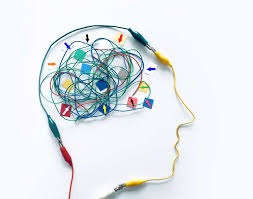In an era of endless scrolling, binge-worthy content, and dopamine-driven distractions, a growing number of people—especially younger generations—are turning to a practice known as dopamine detox. This behavioral reset is gaining traction as a way to reclaim focus, emotional balance, and joy in everyday life. Far from being a fringe wellness trend, dopamine detox is now being studied by psychologists and embraced by productivity experts as a legitimate tool to rewire the brain’s reward system.
What Is A Dopamine Detox?
Dopamine detox, also referred to as dopamine fasting, is not about eliminating dopamine itself—a vital neurotransmitter—but about reducing exposure to high-stimulation activities that flood the brain with instant gratification. These include social media, junk food, video games, and even compulsive multitasking.
- The goal is to recalibrate the brain’s sensitivity to pleasure and motivation
- By abstaining from overstimulating behaviors, individuals can regain appreciation for simple, meaningful experiences
- The practice is rooted in neuroscience, particularly the understanding of how dopamine reinforces reward-seeking behavior
Why It’s Gaining Popularity
- A 2025 study in the International Journal of Indian Psychology highlights dopamine detox as a promising intervention for digital overstimulation, especially among Indian youth
- The practice aligns with rising concerns over attention fatigue, anxiety, and declining productivity in hyperconnected environments
- Influencers, therapists, and tech professionals are increasingly advocating for structured detox periods to improve mental clarity and emotional regulation
How It Works In Practice
- Participants typically designate a day or weekend to avoid all high-dopamine triggers
- Activities like journaling, walking, reading, or meditating are encouraged to replace digital consumption
- Some adopt a tiered approach, gradually reducing exposure to addictive behaviors over time
- The process helps reset the brain’s reward baseline, making everyday tasks feel more satisfying again
Cultural And Psychological Dimensions
- In India, the collectivist culture and familial expectations can both support and complicate detox efforts
- The practice is being adapted to local contexts, with mindfulness and spiritual practices like yoga and silence retreats integrated into detox routines
- Psychologists note that dopamine detox can enhance self-awareness, reduce impulsivity, and improve goal-directed behavior
Criticism And Misconceptions
- Critics argue that the term detox is misleading, as dopamine is not a toxin and cannot be eliminated
- Experts clarify that the practice is more about behavioral reprogramming than neurochemical cleansing
- Others caution against extreme versions of the detox that may lead to guilt or rigidity
Why It Matters Now
As digital fatigue becomes a global concern, dopamine detox offers a low-cost, accessible strategy to restore balance in a world of constant stimulation. It encourages intentional living, deeper focus, and a renewed sense of joy in the mundane.
Sources: International Journal of Indian Psychology, Scientific Origin, Psychology Today, Unstoppable Rise, Financial Express, Metro UK, Indian Express
